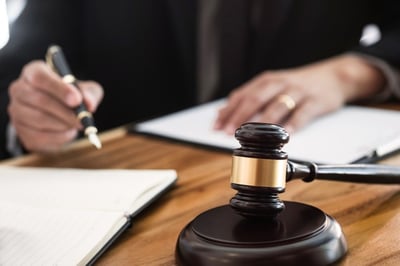FRE 702 Amendment Would Clarify Expert Testimony Standard

Federal Rule of Evidence (FRE) 702 is expected to soon be amended. Pending approval from the Judicial Conference, the U.S. Supreme Court and Congress, the changes would take effect on December 1, 2023. Here’s how two critical amendments to the rule would address the misapplication of the standards for admitting expert testimony by many federal courts.
1. Applying the preponderance standard
The first proposed amendment makes clear that proponents of expert testimony must demonstrate to the court that it’s “more likely than not” that the testimony meets FRE 702’s admissibility requirements. This is the preponderance of the evidence standard that applies to most of the admissibility requirements in the FRE, according to the Judicial Conference’s Committee on Rules of Practice and Procedure.
The committee recognizes that some expert testimony challenges raise matters of weight, rather than admissibility. For example, a court may find it more likely than not that an expert has a sufficient basis to support an opinion. But the fact that the expert hasn’t read every relevant study may raise a question of weight.
That doesn’t mean, though, that arguments about the sufficiency of an expert’s basis always go to weight and not admissibility — as some courts have held. Once a court determines the preponderance standard has been satisfied, any attack by the opponent will go only to the evidence’s weight.
The committee also emphasizes that proponents don’t have to show that their experts’ opinions are correct. They need only show that the opinions are reliable. And FRE 702 requires only that the expert’s knowledge will “help” the trier of fact understand the evidence or determine a fact at issue. Some courts have improperly required expert testimony to “appreciably help” the trier.
2. Gatekeeping expert opinions
Under the proposed changes, FRE 702(d) would be amended to highlight that each expert opinion must stay within the bounds of what can be concluded from reliably applying the expert’s basis and methodology. Judicial gatekeeping is essential, but some courts have left this examination to the jury.
According to the committee, the amendment would be particularly relevant when it comes to the testimony of forensic experts in both criminal and civil cases. Such experts should avoid assertions of absolute certainty, or to a reasonable degree of scientific certainty, if the methodology is subjective and, thus, potentially subject to error.
Where possible, a federal judge determining whether to admit forensic expert testimony should obtain an estimate of the known or potential rate of error of the methodology. Expert opinion testimony regarding the weight of “feature comparison evidence” (evidence that a set of features corresponds between two examined items) must be limited to inferences that can reasonably be drawn from a reliable application of the principles and method.
Note, though, that this amendment wouldn’t impose any new or specific procedures. Nor would it require a court to “nitpick” an expert’s opinion to reach a perfect expression of what the basis and methodology can support.
Stay tuned
As of this writing, these amendments to FRE 702 are awaiting final approval. In the meantime, it’s worth noting that, because the amendments offer only clarification and emphasis, the preponderance standard already applies. Your FRE 702 motions should reflect that, regardless of whether the changes go into effect.
Speak with a Meaden & Moore expert today to learn more.








